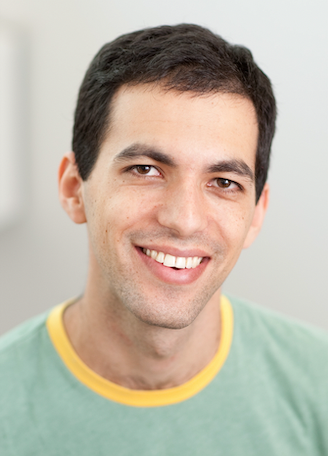Mapping Our Immune System
Yakir Reshef was puzzled. His patient’s aortic wall was becoming dangerously thin—nearing a rupture—with no apparent cause. A rheumatologist at Brigham and Women’s Hospital, Reshef suspected either infection or inflammation. Both indicate that the immune system wasn’t functioning properly, with the former showing it was flagging and the latter meaning it was in overdrive. But current tests are not precise enough to identify which of these conditions was driving his patient’s condition.
Reshef wants to change this. A recent recipient of a grant from BroadIgnite—a Broad Institute program that supports early-career scientists and their bold ideas—he’s using advanced machine-learning techniques to analyze data from blood samples taken from healthy individuals in order to map out different states of the immune system. With this atlas in hand, he and other clinicians will be better positioned to assess how the immune system operates in health—and what goes awry in disease—allowing them to pinpoint the exact immune state behind a patient’s illness and treat them accurately.
Here, Reshef, who also trained in computer science, shares his scientific journey and plans for his BroadIgnite project.
 Yakir Reshef
Yakir Reshef
What sparked your interest in computer science?
In my freshman year of college [at Harvard], I took a theoretical math class called Math 55. It had a reputation for being particularly intense and rigorous, but I couldn't get enough of how it distilled analytical thinking to its purest form: clarity.
For example, when I use language, I’m making noises and hoping they will do something in your brain—but I don’t know exactly how you will interpret them. Math is about as close as you can get to solving that problem. It’s a highly structured language with the primary purpose of lending itself to clarity of expression. That’s what inspired me to be a math major and pursue a Ph.D. in computer science.
How do you envision your BroadIgnite project impacting clinical care?
I have a dream of being able to take each of my patients and place them on a map of immune states. Unlike now, when clinical assessments only coarsely tell us if the immune system is “on” or “off,” we may one day be able to take a patient's blood sample, look at each cell, and definitively say, “Your immune system is fighting a viral infection right now” or “It’s busy attacking your joints.” Then, we might be able to say, “Since your immune system is doing x, I think you have y.”
I hope this research can help doctors make more precise diagnoses—especially in rheumatology where those are in short supply—and give us a quantitative way to make treatment decisions.
Why is the immune system especially challenging to study?
It’s challenging because of its complexity.
There’s an analogy: raw meat spoils at room temperature. You are raw meat at room temperature, and you don’t spoil—because of the immune system. Sure, it’s gross, but it makes you realize that the immune system doesn’t just show up to fight every once in a while. It’s on all the time—a high-dimensional network governed by many interactions between cells and molecules dynamically maintaining the integrity of what's going on in your body.
Why did you choose rheumatology?
I lived in Kenya from ages three to five. My dad was an ophthalmologist stationed there by the Israeli Ministry of Foreign Affairs to perform pro bono eye surgeries, and my mom was an epidemiologist doing fieldwork for her doctorate. All my life medicine has been an undercurrent—I’ve always felt drawn to improving human health and treating patients.
During medical school, I loved everything I tried from psychiatry to surgery. I eventually came to feel though that one of the best ways a scientist can make a difference is to enter a field with little paradigm and where the scientific framework is still being developed—rheumatology is like that. As it happens, one of the pivotal conversations that pushed me toward this point of view was with [Broad Institute Member and 2017 BroadIgnite awardee] Evan Macosko.
I was also drawn to rheumatology because the human side of medicine becomes really important when it is difficult to identify the exact cause of a patient’s condition. It’s a challenging situation for patients to be in, but it is also gratifying to help guide them through that challenge.
When you’re not in the lab or clinic, what do you enjoy doing?
I love music—I play the guitar and violin. I feel like the moments my brain stops running on the hamster wheel are either when I’m with my patients or when I’m playing music.
—Rubina Veerakone